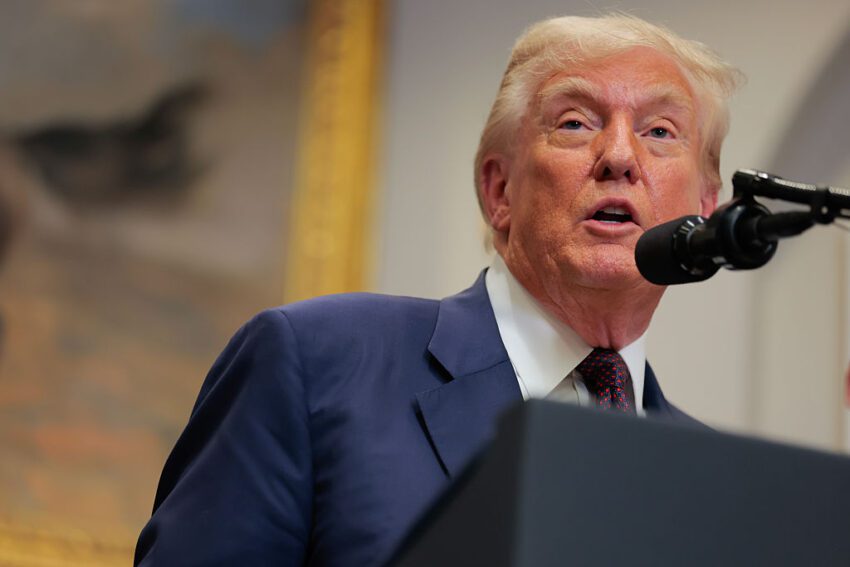
amazon google microsoft reportedly warn h-1b employees Major technology firms are advising their H-1B visa employees to remain in the United States amidst significant changes to immigration policies under the Trump administration.
amazon google microsoft reportedly warn h-1b employees
Background on H-1B Visas
The H-1B visa program is a non-immigrant visa that allows U.S. companies to employ foreign workers in specialty occupations. This visa is particularly popular in the technology sector, where companies often seek skilled professionals in fields such as engineering, computer science, and information technology. The program has long been a point of contention in U.S. immigration policy, with advocates arguing that it is essential for filling skill gaps in the American workforce, while critics claim it can undermine domestic job opportunities.
In recent years, the H-1B visa program has faced increasing scrutiny. The Trump administration has implemented a series of changes aimed at tightening the application process, which has led to uncertainty among foreign workers and their employers. These changes include stricter eligibility requirements and increased scrutiny of applications, which have made it more challenging for companies to secure visas for their employees.
Recent Developments
In light of these developments, major tech companies such as Amazon, Google, and Microsoft have reportedly taken proactive measures to ensure that their H-1B visa employees remain in the U.S. for the time being. This guidance comes as a response to the heightened risks associated with the current immigration climate, which has created a sense of urgency among foreign workers who may be considering returning to their home countries.
Company Responses
According to sources, these tech giants are communicating directly with their H-1B employees, advising them to stay put and not to travel internationally. The rationale behind this guidance is multifaceted:
- Uncertain Immigration Policies: The ongoing changes to immigration policies under the Trump administration have created an unpredictable environment for H-1B visa holders. Employees are concerned that traveling outside the U.S. could jeopardize their visa status, especially if they encounter difficulties re-entering the country.
- Potential Visa Delays: With increased scrutiny of visa applications, employees fear that any attempt to re-enter the U.S. could lead to extended delays or even denial of entry. This uncertainty is particularly daunting for those who may have planned international travel.
- Job Security: Many H-1B employees are integral to their companies’ operations. The potential loss of skilled workers due to immigration complications could significantly impact business continuity, prompting companies to take a protective stance.
Implications for H-1B Employees
The advice from these tech giants has significant implications for H-1B visa holders. Many employees may feel trapped, unable to visit family or attend important events in their home countries due to fears of losing their visa status. This situation can lead to increased stress and anxiety among affected workers, who may already be grappling with the challenges of living and working in a foreign country.
Broader Impact on the Tech Industry
The tech industry relies heavily on H-1B visa holders to fill critical roles that often cannot be filled by domestic workers. If a significant number of these employees choose to leave the U.S. due to immigration concerns, it could exacerbate the existing talent shortage in the industry. This talent gap could hinder innovation and growth, as companies struggle to find qualified candidates for specialized positions.
Moreover, the potential exodus of skilled workers could have long-term ramifications for the U.S. economy. The tech sector is a major driver of economic growth, and a decline in the availability of skilled labor could stifle progress in various technological advancements, from artificial intelligence to cybersecurity.
Stakeholder Reactions
The reactions from various stakeholders regarding the current immigration climate and its impact on H-1B visa holders have been mixed. While tech companies are taking steps to protect their employees, advocacy groups and labor organizations have voiced concerns about the broader implications of the Trump administration’s policies.
Advocacy Groups
Advocacy groups for immigrant rights have criticized the administration’s approach to immigration reform, arguing that it disproportionately affects skilled workers and their families. They contend that the changes to the H-1B visa program are part of a larger trend of anti-immigrant sentiment that undermines the contributions of foreign workers to the U.S. economy.
These groups are calling for a more equitable immigration system that recognizes the value of skilled immigrants and provides pathways for them to contribute to American society. They argue that a more inclusive approach would benefit not only the individuals affected but also the economy as a whole.
Corporate Perspectives
From a corporate perspective, the situation presents a complex challenge. While companies like Amazon, Google, and Microsoft are taking steps to retain their talent, they are also advocating for more favorable immigration policies. Many tech leaders have publicly expressed their support for reforms that would streamline the visa application process and provide greater stability for H-1B workers.
In a recent statement, a spokesperson for one of the tech giants emphasized the importance of skilled immigration for the growth of the U.S. economy. They highlighted that retaining talent is crucial for maintaining the country’s competitive edge in the global technology landscape.
Future Considerations
As the situation continues to evolve, the future of the H-1B visa program remains uncertain. The Trump administration’s policies have raised questions about the long-term viability of the program and the potential for further changes. Stakeholders are closely monitoring developments, as any new regulations could significantly impact the tech industry and its workforce.
Potential Policy Changes
Looking ahead, there are several potential policy changes that could affect H-1B visa holders:
- Increased Scrutiny: The administration may continue to impose stricter requirements for H-1B applications, making it even more challenging for companies to secure visas for their employees.
- Pathways to Permanent Residency: There may be discussions around creating clearer pathways for H-1B visa holders to transition to permanent residency, which could alleviate some of the uncertainty surrounding their status.
- Legislative Reforms: Advocacy groups and industry leaders may push for legislative reforms that address the concerns surrounding the H-1B program, aiming for a more balanced approach to immigration policy.
Conclusion
The current climate surrounding H-1B visas presents significant challenges for both employees and employers in the tech industry. As major companies like Amazon, Google, and Microsoft advise their H-1B visa holders to remain in the U.S., the implications of these policies extend beyond individual workers to the broader economy and the future of the tech sector. The ongoing debate over immigration reform will likely continue to shape the landscape for skilled workers in the United States.
Source: Original report
Was this helpful?
Last Modified: September 21, 2025 at 7:37 pm
0 views















